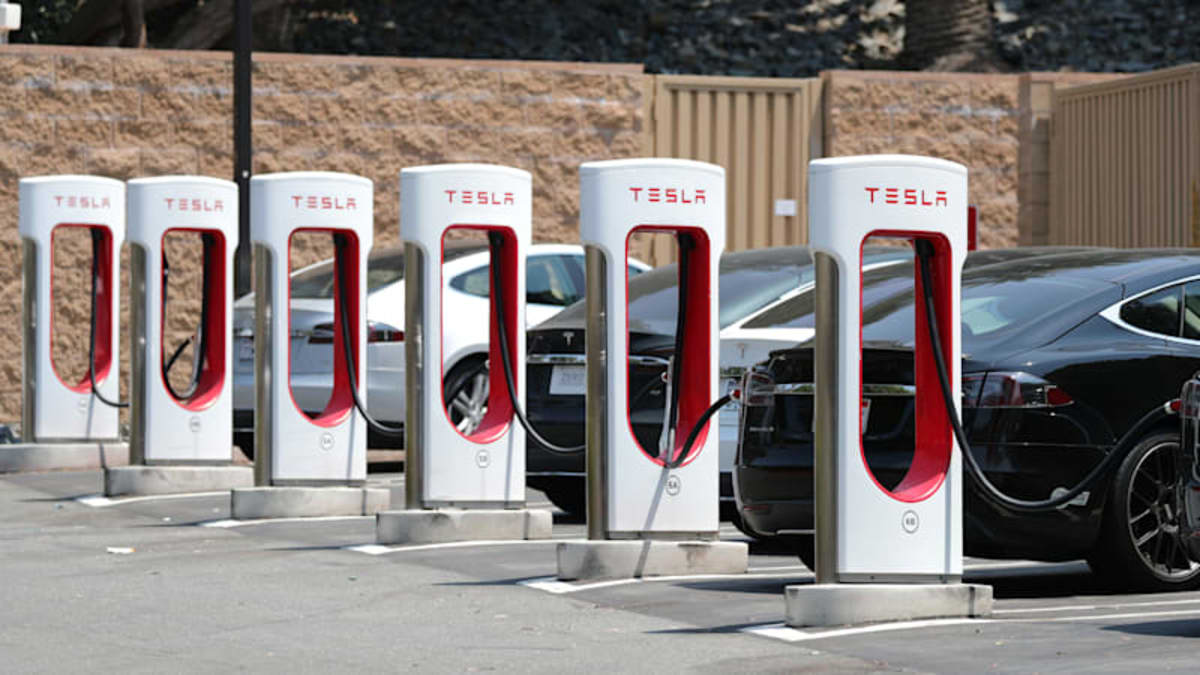by Brian Shilhavy, Health Impact News:

Mercedes-Benz is the latest automaker to announce today that they are adopting Tesla’s North American Charging Standard (NACS), allowing their Electric Vehicles (EVs) to be charged at Tesla’s charging stations.
Mercedes joins Ford, GM, Rivian, Volvo and Polestar in recent days who have all announced that they are turning to the North American Charging Standard that Tesla has developed.
Mercedes-Benz is the latest automaker to adopt Tesla’s North American Charging Standard (NACS). Starting in 2024 Mercedes EVs will gain access to Tesla’s Supercharger network in North America.
TRUTH LIVES on at https://sgtreport.tv/
Mercedes joins Ford, GM, Rivian, Volvo and Polestar in turning to the North American Charging Standard. This leaves Volkswagen, BMW, Hyundai, Toyota, Honda, Stellantis and Tata’s Jaguar Land Rover as North America’s major automakers not yet offering NACS compatibility. Several states, including Texas and Kentucky, are even mandating charging stations funded with the state’s cash must use NACS.
As TechCrunch’s Tim De Chant wrote, NACS is quickly gaining momentum as automakers rush to offer compatibility to Tesla’s charging network. (Full article.)
This sudden change in the automotive industry to adopt Tesla’s charging standard has happened very quickly.
How did the North American electric vehicle market finally decide on a charging port?
Gradually, then suddenly, to paraphrase Ernest Hemingway.
The war isn’t over yet, but with Electrify America announcing this week that it would add Tesla’s North American Charging Standard (NACS) plugs, it’s close. Electrify America’s decision is particularly important because it’s both the largest non-Tesla, fast-charging network and because it’s owned by Volkswagen, a notable holdout.
The shift in momentum was particularly swift. In late 2021, when the government mandated that EV chargers be equipped with CCS to receive federal money, it seemed like Tesla’s NACS was living on borrowed time. The automaker already sells EVs in Europe with an EU-mandated connector that’s similar to North America’s CCS, so it wasn’t such a leap to imagine a similar thing happening in the U.S.
But then Tesla cut a slew of deals with competitors. The first of them breathed new life into NACS, and then subsequent deals tipped it toward becoming the de facto standard.
Over the last month or so, Ford, GM, Rivian, Volvo and Polestar have all said they’d switch to NACS. That leaves Volkswagen, Hyundai, Stellantis, Lucid, Toyota and Nissan. (There are others, but those are the bigger players in the EV space.)
Of that group, several are likely to announce a switch to NACS soon. Volkswagen, Hyundai and Stellantis have all said they’re in talks with Tesla.
What is driving this sudden change in EV charging station standards?
More than likely, this announcement published by the White House a few days ago provides some clues to the answers.
FACT SHEET: Biden-Harris Administration Driving Forward on Convenient, Reliable, Made-in-America National Network of Electric Vehicle Chargers
New Study Shows Public and Private Investments On Track to Achieve Biden-Harris Administration’s Goal of 500,000 Public Chargers; Will Catalyze Additional Private Sector Investment and Create Good-Paying Union Jobs
Through his Investing in America Agenda, President Biden is building the economy from the middle out and bottom up, creating American-made products in American factories with American workers and positioning the United States as a leader in the clean energy economy.
President Biden understands that to compete and win the 21st century global economy, strengthen the American auto industry, and tackle the climate crisis, we must build a convenient and reliable network of made-in-America electric vehicle (EV) chargers along America’s highways and throughout all our communities, especially underserved and overburdened communities.
Today, the National Renewable Energy Laboratory (NREL) released the 2030 National Charging Network study – a new analysis that quantifies the estimated number, type, and location of the chargers needed nationwide to support rapidly growing EV adoption.
The study, produced in collaboration with the Joint Office of Energy and Transportation (Joint Office) and the U.S. Department of Energy’s (DOE) Vehicle Technologies Office (VTO), assesses charging infrastructure needs for light-duty EVs with an unprecedented level of detail, including by accounting for the effects of local variation in EV adoption, climate, travel patterns, housing, and charging preferences. (Full announcement.)
This clearly appears to me to be another method of having the Government attempt to record and track every aspect of our lives, and the one product that has given Americans the most independence over the years has been the ability to own a vehicle and be able to drive it anywhere one wants, anytime one wants to.
Being able to fuel your non-electric vehicle with diesel or gasoline by paying with cash, is still an option.
But unless you own your own EV charger at home, and choose NOT to connect it to the Internet, it is impossible to fuel your electric vehicle anonymously with cash, because almost all charging stations require an app on your cell phone device to unlock and use a charging station connection.
Read More @ HealthImpactNews.com



